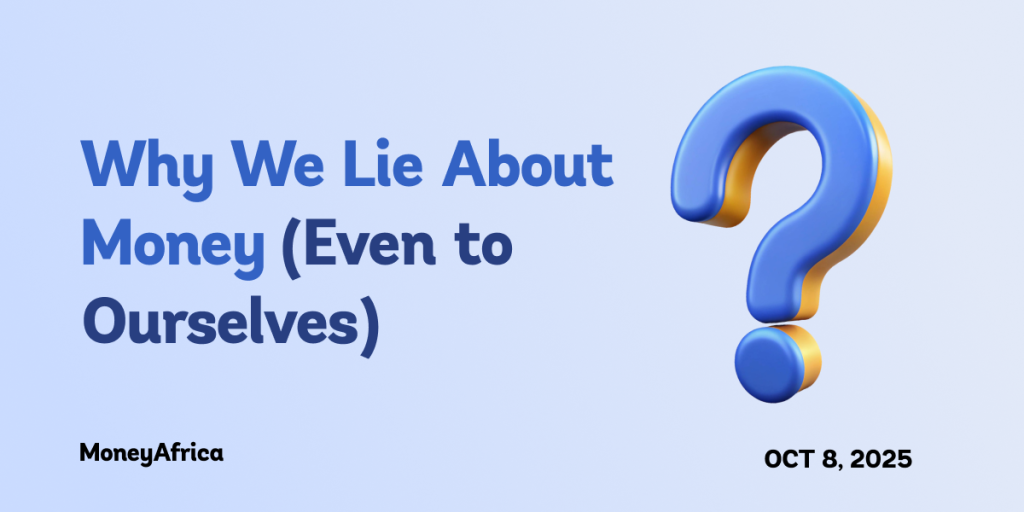Let’s be honest, money makes people do strange things. Not just spending too much or saving too little, but lying. And not always to others sometimes, to ourselves.
You’ve probably heard one of these before, maybe even said it yourself: “I’ll start saving when I earn more.” “It’s just a small loan; I’ll pay it back soon.” “I deserve this; I’ve been working so hard.” “My finances are not that bad.” “Next month, I’ll finally make a budget.”
They sound harmless, but these little lines are not just excuses, they’re coping mechanisms. We use them to protect ourselves from discomfort, guilt, or fear. They buy us a little peace in the moment but cost us clarity in the long run.
Why We Lie About Money
We lie about money for many reasons. Sometimes, it’s to protect our ego. Admitting we’ve made poor financial decisions feels like failure so we rationalise by saying, “Everyone is struggling,” or “Things will get better soon.”
Other times, it’s because facing financial truth is heavy. It means opening your banking app and confronting the reality of debt, spending, or neglect.
There’s also the pressure of appearances. Social media makes it look like everyone is doing well. You tell yourself you’re keeping up, even if your account balance says otherwise.
And then there’s the most deceptive lie of all mistaking hope for a plan. Saying “something will come up” feels comforting, but hope isn’t a financial strategy.
Facing the Truth
Here’s a simple exercise: Ask yourself, “If someone else looked at my bank statement, would my words match my actions?”
If the answer is no, there’s a gap between perception and reality and that’s where the financial lies live.
Getting honest about money starts with awareness. Look at all of your numbers. Every transfer, every impulse purchase, every debt repayment. Call things what they are. Instead of grouping everything under “entertainment,” label the expense truthfully. Was it joy, was it stress, or was it coping? Labels bring awareness.
And don’t carry the burden alone. Talk to someone you trust—a friend, a mentor, or within the MoneyAfrica community. Saying things aloud reduces shame.
Finally, drop judgement. Instead of asking, “Why am I like this?” ask, “What was I feeling when I did that?”
Curiosity opens the door that guilt keeps shut.
You Might Ask
“I make good money but still end up broke each month. What am I doing wrong?”
That’s the lie of “I can afford it.”
Earning more doesn’t always fix financial problems. Many high earners stay broke because their lifestyle silently expands alongside their income. Until you track your spending honestly and assign meaning to your money, you’ll always feel behind no matter how much you earn.
Key Takeaway
Money honesty isn’t about guilt it’s about clarity. You can’t change what you refuse to face. Once you’re truthful about how and why you spend, you gain the power to make better choices.
The first step to fixing your finances is to stop pretending.
Your turn:
What’s one money lie you’ve told yourself before and what did it cost you?

